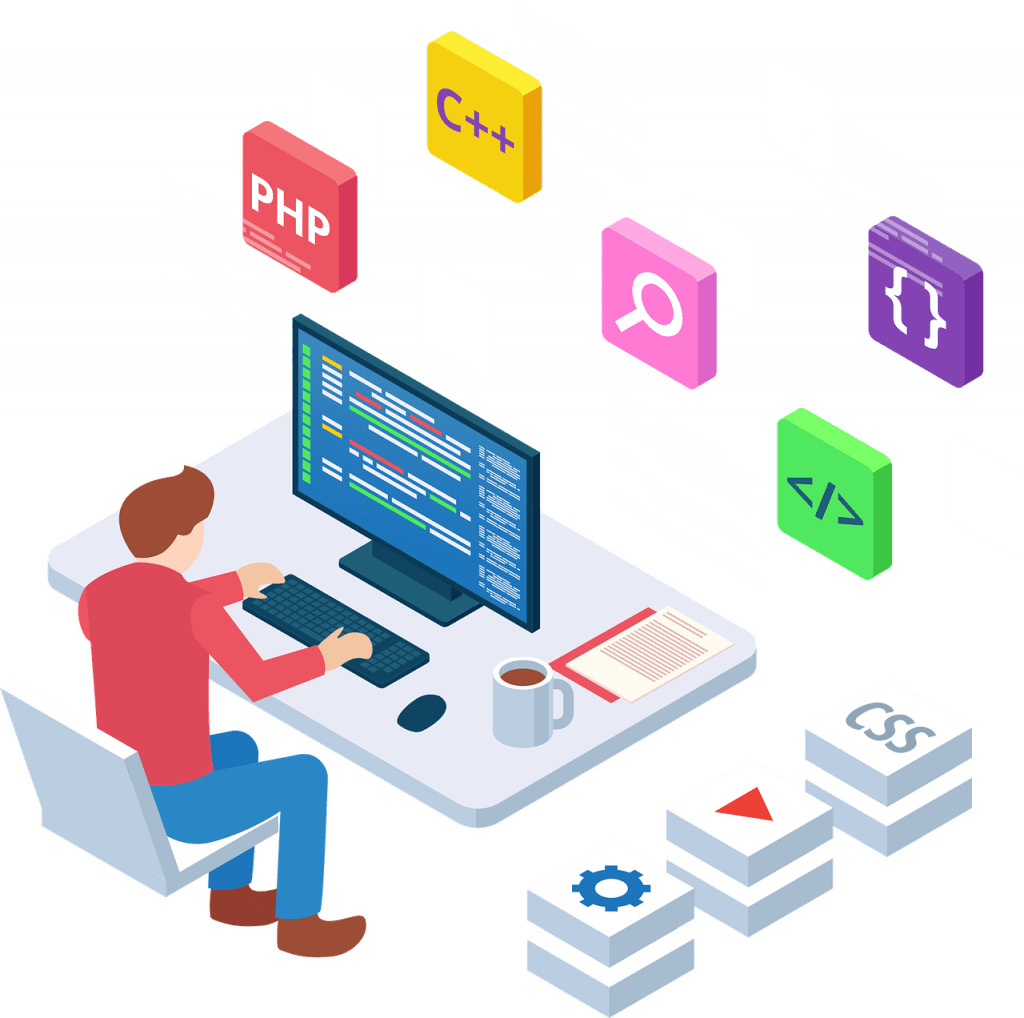The Ultimate Guide to 2024 Programming Language and Frameworks

Are you ready to dive into the world of 2024 programming languages and frameworks? If you’re a developer looking to stay ahead of the curve, this blog post is for you. In this comprehensive guide, we’ll explore popular programming languages and frameworks, the difference between a programming language and a framework, and why understanding the landscape of languages and frameworks is crucial in the ever-evolving world of software development.
What is a Programming Language?
A programming language is a set of rules and syntax that allows developers to write code to communicate with computers. These languages are sets of instructions that tell a computer what to do, how to do it, and when to do it. Some widely used programming languages include JavaScript, Python, Java, PHP, and Ruby. Each language has its strengths and weaknesses, and developers often choose different languages based on the specific requirements of a project.
What is a Framework?
A framework is a pre-built structure that developers can use to simplify the development process. It provides a foundation for building software applications and includes common functionalities, libraries, and tools to streamline coding. Frameworks like Django, Ruby on Rails, and Spring Framework are popular choices for developers working on web development projects. By using a framework, developers can save time and effort by leveraging pre-existing code and design patterns.
The Difference Between a Programming Language and a Framework
While a programming language is a set of rules and syntax for writing code, a framework provides a pre-built structure for development. In other words, a programming language is the medium through which developers communicate with computers, while a framework is a set of tools and libraries that simplify the development process. Understanding the difference between a programming language and a framework is crucial for developers looking to optimize their coding workflow and build efficient software applications.
JavaScript: The Language of the Web
JavaScript is a popular programming language that is widely used for web development. It is a high-level, interpreted language that is mainly used for front-end development to enhance the user interface of web pages. JavaScript frameworks like React, Angular, and Vue.js have gained popularity in recent years for building dynamic web applications. By mastering JavaScript, developers can create interactive and engaging web experiences for users.
Python: The Swiss Army Knife of Programming
Python is a versatile programming language that is known for its readability and ease of use. It is a general-purpose language that can be used for a wide range of applications, including web development, data analysis, and artificial intelligence. With frameworks like Django and Flask, Python developers can build web applications quickly and efficiently. Python’s simple syntax and powerful libraries make it a popular choice for developers of all skill levels.
Which Programming Languages Have the Best Web Frameworks in 2024?
Choosing the right language and framework for your project is crucial to its success and efficiency. Whether you opt for Python with Django, JavaScript with React, Java with Spring, or Ruby with Rails, each combination offers unique advantages and capabilities that cater to specific development needs. By staying informed about the latest trends and advancements in the tech industry, you can make informed decisions that drive your projects to success.
Python: Leading the Way with Django and Flask
Python has been gaining popularity in recent years, thanks to its simplicity and versatility. With frameworks like Django and Flask, Python offers robust solutions for web development, making it a top choice for developers worldwide. Django, known for its “batteries included” approach, provides a full-stack framework for building complex web applications. On the other hand, Flask is a lightweight and customizable framework that allows developers to create simple and scalable web applications with ease.
JavaScript: Revolutionizing Front-End Development with React and Angular
JavaScript continues to dominate the world of front-end development, with frameworks like React and Angular leading the way. React, developed by Facebook, has quickly become a favourite among developers for building interactive user interfaces. Angular, backed by Google, offers a comprehensive framework for building dynamic web applications. Both frameworks provide a range of features and tools that simplify the development process and enhance the user experience.
Java: Powering Enterprise Applications with Spring and Hibernate
Java remains a popular choice for building enterprise applications, thanks to its stability and platform independence. Frameworks like Spring and Hibernate have solidified Java’s position in the market by providing efficient solutions for developing complex, scalable applications. Spring, known for its extensive ecosystem and dependency injection capabilities, simplifies the development of enterprise applications. Hibernate, on the other hand, offers seamless integration with databases, making data manipulation and retrieval hassle-free.
Ruby: Embracing Agile Development with Ruby on Rails
Ruby on Rails, often referred to as Rails, is a dynamic framework that has revolutionized web development with its focus on convention over configuration. Ruby’s simplicity and expressiveness make it a popular choice among startup companies and small businesses. Rails, known for its rapid development capabilities and robust features, allows developers to build sophisticated web applications in a short period. With a strong community backing and continuous updates, Ruby on Rails is expected to remain a top choice for developers in 2024.
Conclusion: What to Remember
As a developer, understanding the landscape of languages and frameworks is crucial for staying competitive in the world of software development. By mastering popular programming languages like JavaScript and Python, and leveraging frameworks like Django and Ruby on Rails, you can streamline your development process and build innovative software applications. Remember to choose the right tools for your project, keep up with the latest trends, and never stop learning and experimenting with new languages and frameworks.
In conclusion, the world of 2024 programming languages and frameworks is vast and ever-evolving. By staying informed and staying curious, you can unlock new possibilities and push the boundaries of what’s possible in software development. So, are you ready to take your coding skills to the next level? Dive into the world of 2024 programming languages and frameworks today!
See Also:
Quick Guide to Languages and Frameworks
FAQs
Q: What is the 2024 Programming Language and Frameworks Guide all about?
A: The guide aims to provide comprehensive information about different programming languages and frameworks that will be popular in the year 2024, focusing on web development and coding languages.
Q: How can I benefit from learning about specific languages and frameworks?
A: By learning about specific languages and frameworks, you can stay ahead in the rapidly evolving world of technology, enhance your skills, and improve your opportunities in the job market.
Q: What are the key features of a good web development framework?
A: A good web development framework should be user-friendly, efficient in handling various tasks, have strong community support, and offer features for building responsive and interactive user interfaces.
Q: Why is cross-platform compatibility important in coding languages and frameworks?
A: Cross-platform compatibility allows developers to write code once and run it on multiple platforms, saving time and effort in developing applications for different operating systems or devices.
Q: How do front-end frameworks contribute to the development of user interfaces?
A: Front-end frameworks provide pre-written code components and design patterns that allow developers to create visually appealing and interactive user interfaces more efficiently.
Q: Which are some popular open-source frameworks for web development in 2024?
A: In 2024, popular open-source frameworks for web development include Django, React.js, Angular, Vue.js, and Laravel, among others.
Q: Is Python framework considered a high-level language for web development?
A: Yes, Python is a high-level language commonly used in web development due to its readability, efficiency, and vast ecosystem of libraries and frameworks such as Django and Flask.

I am a self-motivated, passionate website designer and developer. I have over ten years of experience in building websites and have developed a broad skill set including web design, frontend and backend development, and SEO.
Using my growing knowledge base I have built my own company (scriptedart.co.uk) creating websites, e-commerce stores and producing custom graphics and web app functionality for a range of local businesses.

